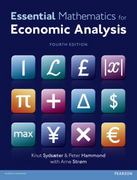Question
Question 4) - Part A 7-marks You are a young finance professional who is pursuing his career into the equity market, after a long efforts
Question 4) - Part A 7-marks
You are a young finance professional who is pursuing his career into the equity market, after a long efforts he got the position in equity firm where initial job description is to pitch clients for long term investments into different sector of Pakistan Stock Market. After meeting two or three clients he decided to use the relative valuation approach in order provide a useful insight to clients and convince them for investments. He gather the data of few firms which are mentioned below in the exhibit 1
|
| FFBL | EFERT | FFC | ENGRO | AHCL | FATIMA |
| Current Market Price | 21.40 | 66.49 | 111.00 | 303.50 | 43.50 | 28.80 |
| EPS | (7.00) | 9.50 | 14.36 | 16.86 | 2.09 | 6.82 |
| Total Equities value (In mn) | 2,626 | 45,111 | 37,682 | 86,209 | 15,486 | 80,971 |
| No. of shares (In mn) | 934 | 1,335 | 1,272 | 576 | 408 | 2,100 |
| Expected growth of EPS | 5.00% | 7.00% | 2.00% | 3.00% | 7.00% | 5.00% |
| Expected growth of BV | 2.00% | 7.50% | 3.50% | 4.00% | 5.50% | 7.00% |
Exhibit 1
Now find the intrinsic value based on the relative valuation approach by using the above statistics, however, you will use the 70% weight to PE and 30% weight to PB approach to find the expected intrinsic value, furthermore, hell only invest in company which produces the more than 15% of return.
Instructions:
Write down the brief report of at least 250 words with complete steps of your working.
Question 4) - Part B
Your client is willing to invest in Mutual funds industry to keep its portfolio diversified. Therefore he wants your advice in respect to which fund is better option for his risk level positions. He is risk averse investors and required high liquidity which enables him to meet day to day operations. You have gathered the data from Mutual funds and its allocation which are mentioned below:-
|
| Fund A | Fund B | Fund C |
| Cash & Cash Equivalents | 30.00% | 5.00% | 20.00% |
| Equity | 40.00% | 70.00% | 60.00% |
| Bonds | 30.00% | 25.00% | 20.00% |
| Total | 100.00% | 100.00% | 100.00% |
| Portfolio Return | 18.00% | 25.00% | 20.00% |
| Benchmark Index Return | 15.00% | 20.00% | 22.00% |
| Risk Free Rate of Return | 7.50% | 7.50% | 7.50% |
| Portfolio Risk (Variance) | 1.50% | 6.00% | 4.50% |
| Tracking error | 5% | 12% | 10% |
| Covariance with Market | 0.1425 | 0.2567 | 0.1555 |
| Variance of Market | 0.5752 | 0.1426 | 0.1825 |
Use above information to measure the different ratios for mutual funds evaluation.
- Sharpe Ratio
- Jensens Alpha
- Information Ratio
Recommend which fund is best suitable to clients risk and return profile.
Step by Step Solution
There are 3 Steps involved in it
Step: 1

Get Instant Access to Expert-Tailored Solutions
See step-by-step solutions with expert insights and AI powered tools for academic success
Step: 2

Step: 3

Ace Your Homework with AI
Get the answers you need in no time with our AI-driven, step-by-step assistance
Get Started


